1
/
of
4
Alocasia 'African Mask'
Alocasia 'African Mask'
Regular price
$23.99 USD
Regular price
Sale price
$23.99 USD
Unit price
/
per
Shipping calculated at checkout.
Free Shipping on All Plants
The Alocasia amazonica polly 'African Mask' is a visually striking houseplant, notable for its dramatic and unique aesthetic. The leaves of this variant are arrow-shaped, showcasing a deep, glossy green hue intricately patterned with bold, white veins, reminiscent of an intricate African mask. The 'African Mask' Alocasia presents a compact growth habit, sustained by robust, dark stems. Reaching its full height, this Alocasia typically attains a manageable height of 1-2 feet.
Botanical & Common Names
Botanical & Common Names
Botanical: Alocasia amazonica polly
Common: African Mask, Alocasia Polly, Elephant Ears, Black Shield Plant
Necessary Care Tips
Necessary Care Tips
- Light: Bright Indirect
- Ideal Temperature: 65-75°F
- Humidity: High
- Water: When the top inch of soil is dry
- Fertilize: Once a month during the growing season with a balanced fertilizer diluted to half strength
- Preferred Soil: Well-Draining Potting Mix
Advanced Care Tips
Advanced Care Tips
- Alocasias go dormant in winter, so don't be alarmed if growth slows down during this period.
- To encourage your Alocasia to flower, provide it with optimal conditions and allow it to rest during the winter period.
- If your Alocasia does flower, it's a sign that the plant is healthy and happy. However, if you are not interested in the flowers, you can simply remove them which will help redirect the plants energy into producing new leaves.
Plant Insights
Plant Insights
- Member of the Araceae family, also known as the Arum family, which is a large family of flowering plants that includes over 3,700 species.
- Alocasias are native to tropical and subtropical regions oof Asia, the Pacific Islands, and Eastern Australia.
- While Alocasias are grown for their beautiful leaves, they can also produce flowers that are not very showy and non-fragrant.
- This plant has air purifying qualities and is believed to remove indoor pollutants like formaldehyde and benzene.
- This Alocasia was named after an agricultural journalist from the Philippines named Zac B. Sarian.
- Unsafe / Toxic
- Medium Maintenance
Couldn't load pickup availability
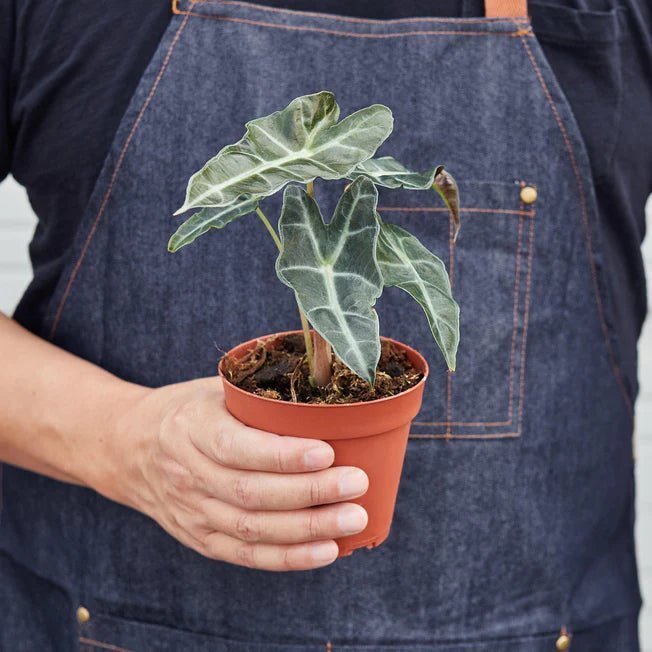
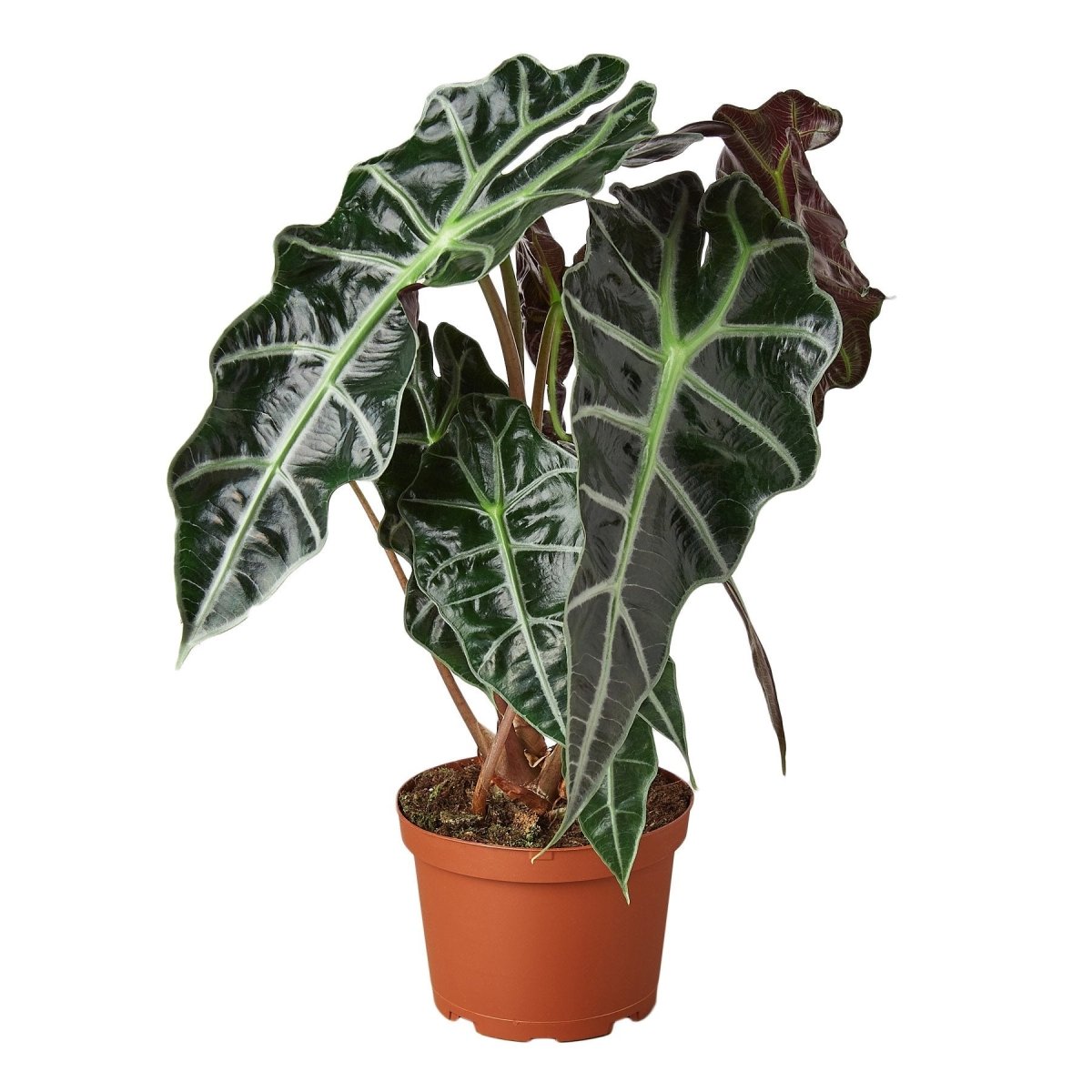
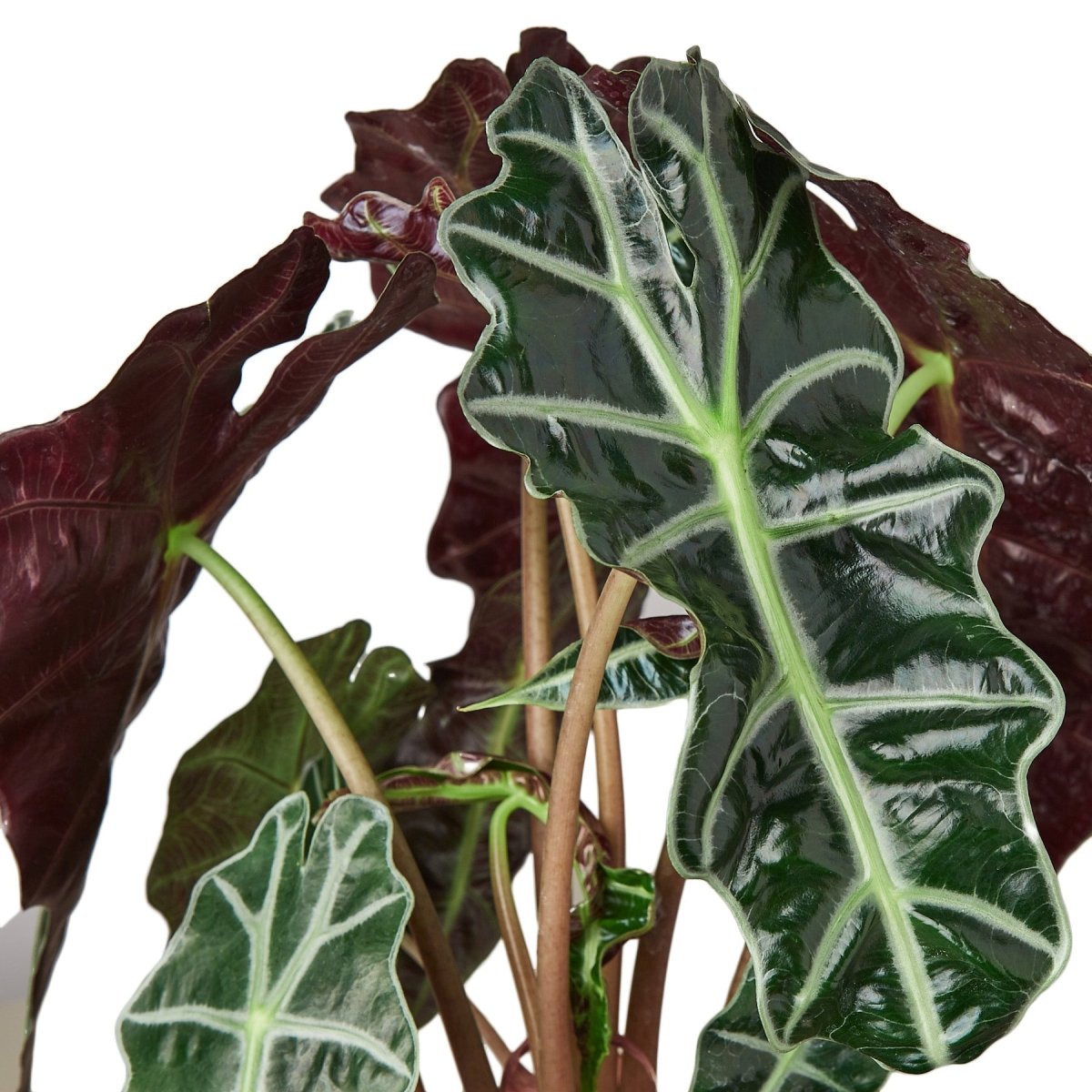
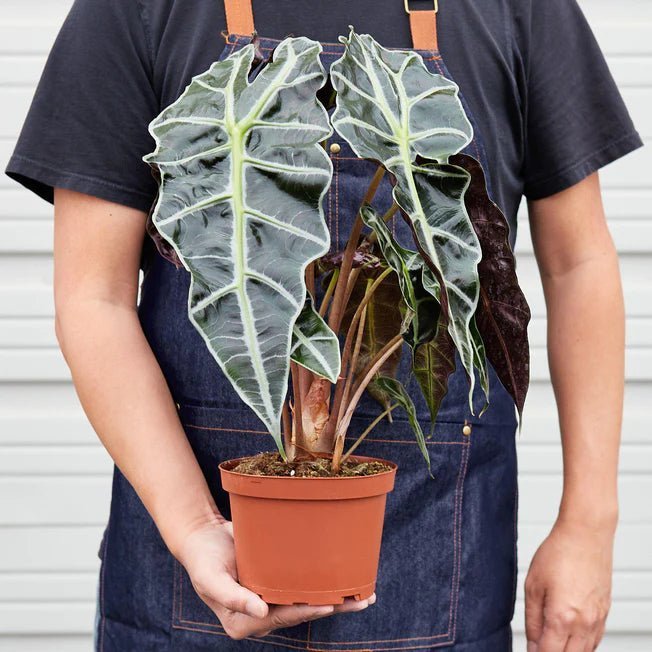
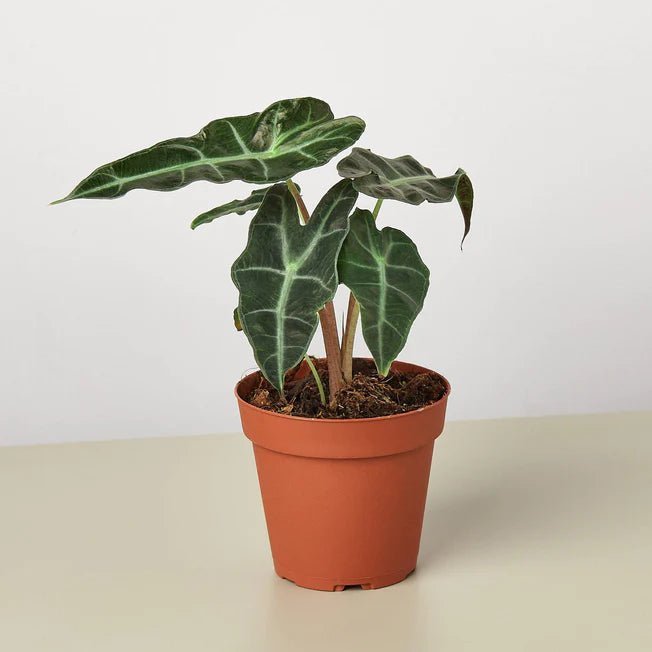
Subscribe to our emails
Be the first to know about new collections and exclusive offers.




